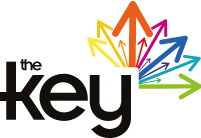KEY+ Group: Roots
‘Roots’ is a KEY+ group that took on the challenge to tackle men’s mental health and raise money for a suicide prevention charity.
The young people involved acknowledged that men’s mental health was a very important topic to them, so they were eager to do something to help. They decided to plan and host their own charity football match to raise awareness of the project and organisations that can help young men.
This project required a lot of organisational skills, sticking to targets and budgets, communicating with other organisations and providing information. The group especially wanted to improve their teamwork, communication and leadership skills during the project.
The group visited a food warehouse for drinks and snacks to sell at a stall; they also bought raffle prices, bracelets and teddy bears to sell. They then used a card machine to help get donations from card payments – this helped them to raise more money in an increasingly cashless world.
‘Roots’ said that “the event was better than we expected and went very well” despite having fewer people than expected attending due to bad weather.
Talking about the skills they gained, they said that “this project has helped us gain confidence and the ability to speak to other people in organisations and regular people. We have learned how to mix with others and speak up for ourselves.”
Overall, they managed to raise £300! MIND also told the group that they would match this amount, meaning that the group actually made £600. ‘Roots’ were proud that they were able to raise this money and that they could talk with other students and organisations about mental health.
The group will also continue doing mental health sessions around football on a regular basis at college. This has allowed the team to have a legacy of their project that will continue to help people even after they have moved on.
Reflecting on their project, their facilitator, Kirsty, noted that the group have “grown in confidence with the change being noticeable compared to how they were in the first few weeks. [...] The group changed from being uninterested and difficult to communicate with to being more positive and engaged [...and] eventually the group melded into a stronger team and friendships blossomed where previously they had not."







